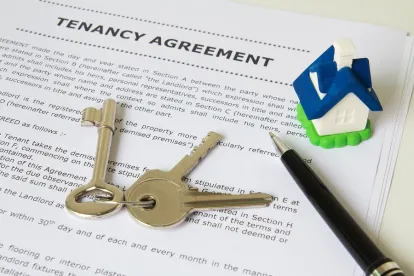It was just a few short years ago (though it may seem like an eternity now) that tenants were generating substantial profits and competing fiercely for prime retail space. Landlords could not construct shopping centers quickly enough to satisfy the demand. With multiple tenants usually vying for the same space, landlords had the majority of the leverage in negotiating lease terms. Once the basic terms (i.e., duration of lease, rental amount and improvement allowance) were agreed upon, the parties worked frantically to finalize an agreement.
As a result of the tenant-saturated marketplace, parties were willing to forgo the negotiation process that is customarily used to address more nuanced points of a lease. One of these very important points is the exclusive use clause (EUC). For a landlord, just how extensively that EUC was negotiated can today mean the difference between a successful shopping center with a well-balanced mix of retail offerings and happy tenants, and a center that is on the verge of extinction. For a tenant, it could mean the difference between being the sole purveyor of a certain product and having to compete with a rival retailer just a few doors away. While tenants have considerable bargaining power in today's tenant-friendly marketplace, there are ways landlords may safeguard against future pitfalls by paying careful attention to the EUC during the negotiation process.
Landlord and Tenant: Differing Perspectives
When negotiating an EUC with a prospective tenant, the landlord should consider language that causes the EUC to automatically terminate if (i) the tenant is in default of the lease; (ii) the leased space is sublet; (iii) the lease is assigned to an entity that does not conduct the same type of business for which the EUC was granted; or (iv) the tenant goes dark in all or a portion of the leased premises. While this may sound like a basic concept, it is often overlooked. Such an omission may leave a landlord with a dark storefront and a gaping hole in its tenant mix.
Let's imagine a national coffee shop chain enjoys an EUC in one of its lease agreements allowing it to go dark and still preclude the landlord from bringing in another tenant that sells coffee. As a result, the shopping center and the other tenants will suffer due to less consumer traffic, especially in the morning. Ultimately, those unhappy tenants may be less inclined to extend or renew their leases at the expiration of the current term. The landlord could have avoided this scenario by being more diligent in negotiating the EUC on the front end.
From the tenant's perspective, however, the EUC might not appear problematic. So long as rent is being paid on time and the tenant is not otherwise in default of the lease, the landlord shouldn't care if the store is actually open for business. Furthermore, the EUC is part of what the tenant bargained for and provides marketability of its lease through a sublease and/or assignment transaction. The tenant, after all, may decide to re-open once the economy turns around and consumers are willing to spend more money. Alternatively, perhaps the tenant has opened a new store a few miles down the road and, as part of its strategic plan to keep a competitor out of the immediate area, it is advantageous for the tenant to maintain its EUC in the shopping center where it recently went dark.
Other Points for Consideration
Depending on the prestige of the tenant and its leverage in the lease negotiation, a landlord may be willing to concede on the point of an automatic termination. As an alternative, the landlord may seek to include in the lease agreement, among other things, (i) a provision allowing the leased space to remain dark for a limited number of consecutive days; (ii) a recapture provision allowing the landlord to terminate the tenant's lease in the event of a request for approval of an assignment or a sublease; and (iii) myriad exceptions to the EUC (e.g., allowing other tenants to compete with the exclusives granted by the landlord, up to a certain amount of gross sales or within a limited number of square feet of the leased premises). While each of these conciliations could lead to a temporarily vacant space and strained relationships between the landlord and its other tenants, the same conciliations might also help prevent a space from becoming vacant indefinitely.
Even in today's market where landlords are often at a disadvantage, the tenant may be willing to compromise in order to secure space in a particularly desirable location. In such a situation, the tenant may seek a lengthy notice and cure period as an alternative to an automatic termination. This will provide the tenant with time to formulate an alternative strategy in the event that its current location is no longer desirable. Another option would be for the tenant to request that the exclusive remain in place so long as the premises is occupied and open to the public, regardless of whether or not the use is the same as that for which the exclusive was granted. A sublet or assignment may then be the answer, which could help the tenant keep the exclusive in place and limit the growth of its direct competition in the immediate vicinity. In the case of a franchisee tenant, the franchisor will generally want the right to assume the lease and assign it to another franchisee operator.
Working Together with Legal Counsel
Whether you are the landlord or the tenant in a lease negotiation, it will generally be in the best interest of both parties to reach a reasonable compromise. Especially given today's economy, it is also important to engage an attorney who is knowledgeable in the finer points and nuances of a lease agreement. Failing to properly address these issues before signing a lease could lead to adverse ramifications months or years down the road.
Yes, navigating today's economic environment is often a challenge, but goodwill engendered between landlords and tenants can go a long way towards keeping the relationship amenable and both parties happy. Hopefully, that high level of cooperation will also allow each party to reap the benefits of the other's eventual successes.




 />i
/>i

